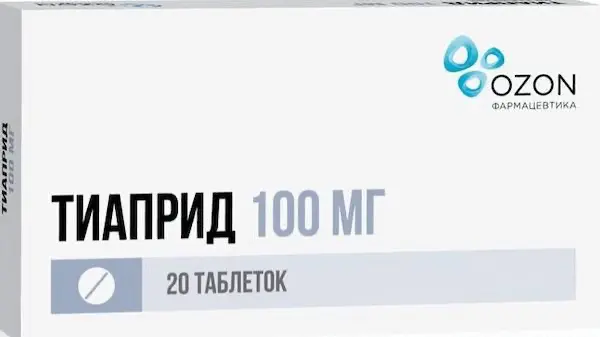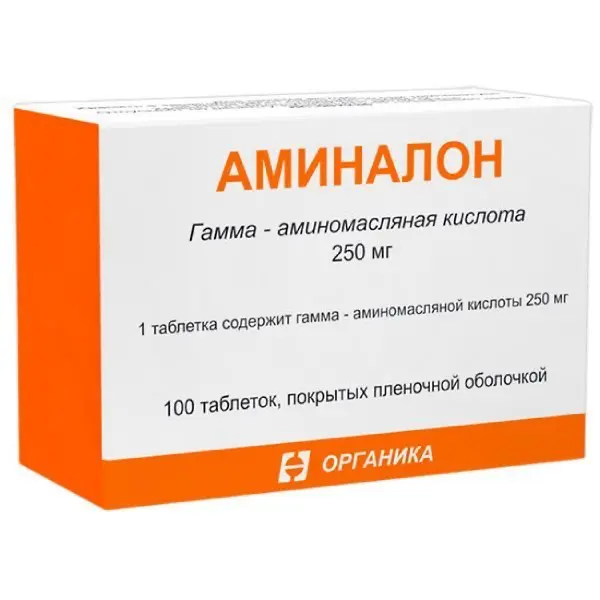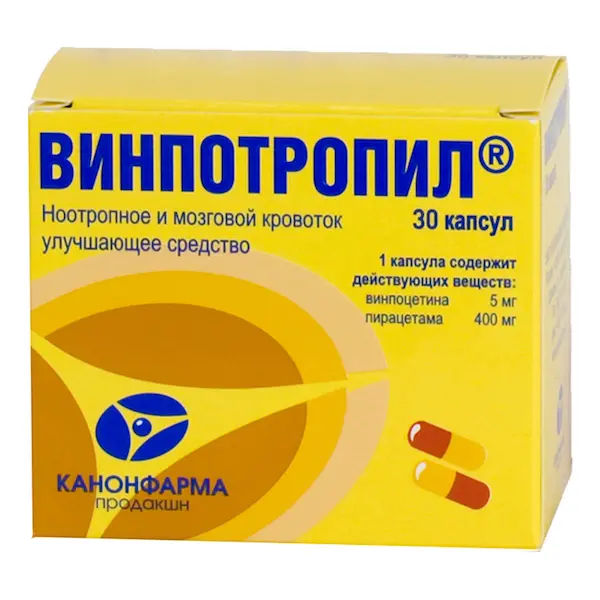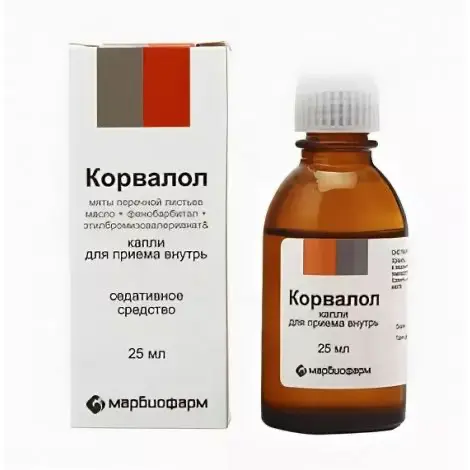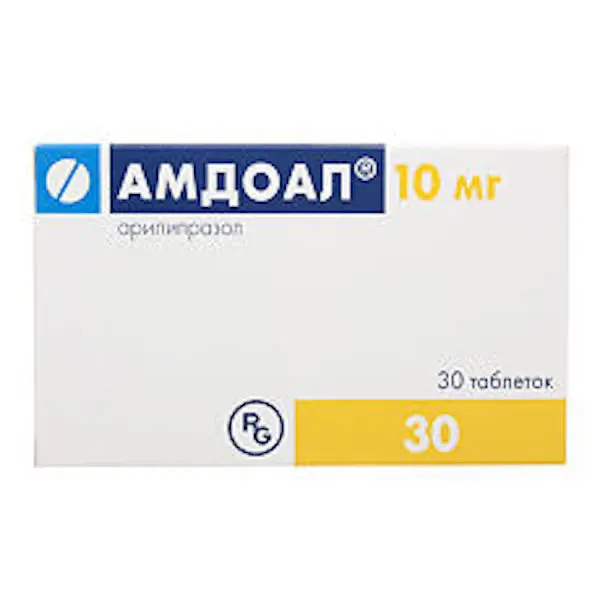Description
Tiapride Pharmacodynamics
The antipsychotic is an atypical neuroleptic that in vitro selectively blocks the D2 and D3 subtypes of dopamine receptors without any significant affinity for the receptors of major central neurotransmitters (including serotonin, noradrenaline, histamine). In vivo neurochemical and behavioral response studies have confirmed these properties of tiapride, showing the presence of antidopaminergic effects in the absence of significant sedation, catalepsy and cognitive decline.
Thiapride is able to act on dopamine receptors previously sensitized to dopamine by any other antipsychotic, and its antidyskinetic effects have been attributed to this.
Thiapride’s anxiolytic activity has been confirmed in several experimental animal models of stress, including alcohol withdrawal in mice and primates.
Thiapride has not been shown to form physical or mental dependence.
This atypical pharmacodynamic profile explains the clinical efficacy of thiapride for many disorders, including hyperdopaminergic conditions such as dyskinesias and psychobehavioral disorders seen in patients with dementia or in alcohol abusers, with fewer neurological side effects compared to typical neuroleptics. Tiapride has pronounced analgesic (for both interoceptive and exteroceptive pain), antiemetic (due to blockade of dopamine Eg-receptors of the vomiting center trigger zone), hypothermic action (due to blockade of dopamine receptors of hypothalamus).
Indications
In adults
Short-term treatment (no more than 4 weeks) of agitation and aggressive states:
– In elderly patients;
– In patients with alcohol dependence if benzodiazepines are not effective or intolerant.
In adults and children over 6 years of age.
Severe form of chorea, severe form of Gilles de la Tourette syndrome.
In children over 6 years of age.
Behavioral disorders with agitation and aggression.
Contraindications
– Hypersensitivity to thiapride or other excipients of the drug.
– Diagnosed or suspected prolactin-dependent tumors, such as pituitary prolactinoma and breast cancer.
– Pheochromocytoma, suspected pheochromocytoma.
– Children under 6 years of age (risk of choking if the tablet enters the respiratory tract).
– Breast-feeding period (see section “Administration during pregnancy and breast-feeding”).
– Concomitant use of levodopa (see section “Interaction with other medicinal products”),
– Concomitant use of cabergoline, quinagolide (see section “Interaction with other medicinal products”).
It is not recommended to use the drug in Parkinson’s disease (except for urgent necessity of thiapride use, see sections “Caution”, “Interaction with other medicinal agents”, “Cautions”).
Dosage and administration
- For adults and children over 6 years of age only.
- It is always necessary to choose the minimum effective dose. If the patient’s condition allows, treatment should begin with a low dose, then gradually increasing it.
- The daily dose of the drug is divided into 2-3 doses.
- Agitation and aggressive states in chronic alcoholism or in elderly patients
- The drug is prescribed in a dose of 200-300 mg per day. The course of treatment is not more than 4 weeks.
- In elderly patients the dose of 200-300 mg per day should be achieved gradually. Treatment should begin with a dose of 50 mg twice daily. Then the dose can be gradually increased by 50-100 mg every 2-3 days. The average dose used in elderly patients is 200 mg per day, and the maximum dose is 300 mg per day. Severe form of chorea, severe form of Gilles de la Tourette syndrome For adults, the daily dose is 300 to 800 mg per day.
- Treatment should be started with a very low dose – 25 mg per day, with its subsequent gradual increase until the minimum effective dose is reached.
- For children over 6 years of age, the daily dose is usually 100-150 mg (3-6 mg/kg body weight). The maximum daily dose is 300 mg.
- In adults and children the duration of treatment is determined by the physician in each individual case and depends on the clinical course of the disease.
- Behavioral disorders with agitation and aggression in children over 6 years of age
- The dose is 100-150 mg per day.
- Patients with impaired renal function
- In patients with impaired renal function, tiapride excretion correlates with creatinine clearance. Therefore, in creatinine clearance 30-60 ml/min, the dose should be reduced by 25%, in creatinine clearance 10-30 ml/min the dose should be reduced by 2 times, in creatinine clearance less than 10 ml/min the dose should be reduced by 4 times, compared with doses in normal renal function.
- Patients with impaired liver function
- The drug is slightly metabolized in the body, but in patients with liver dysfunction the drug should be used with caution.

